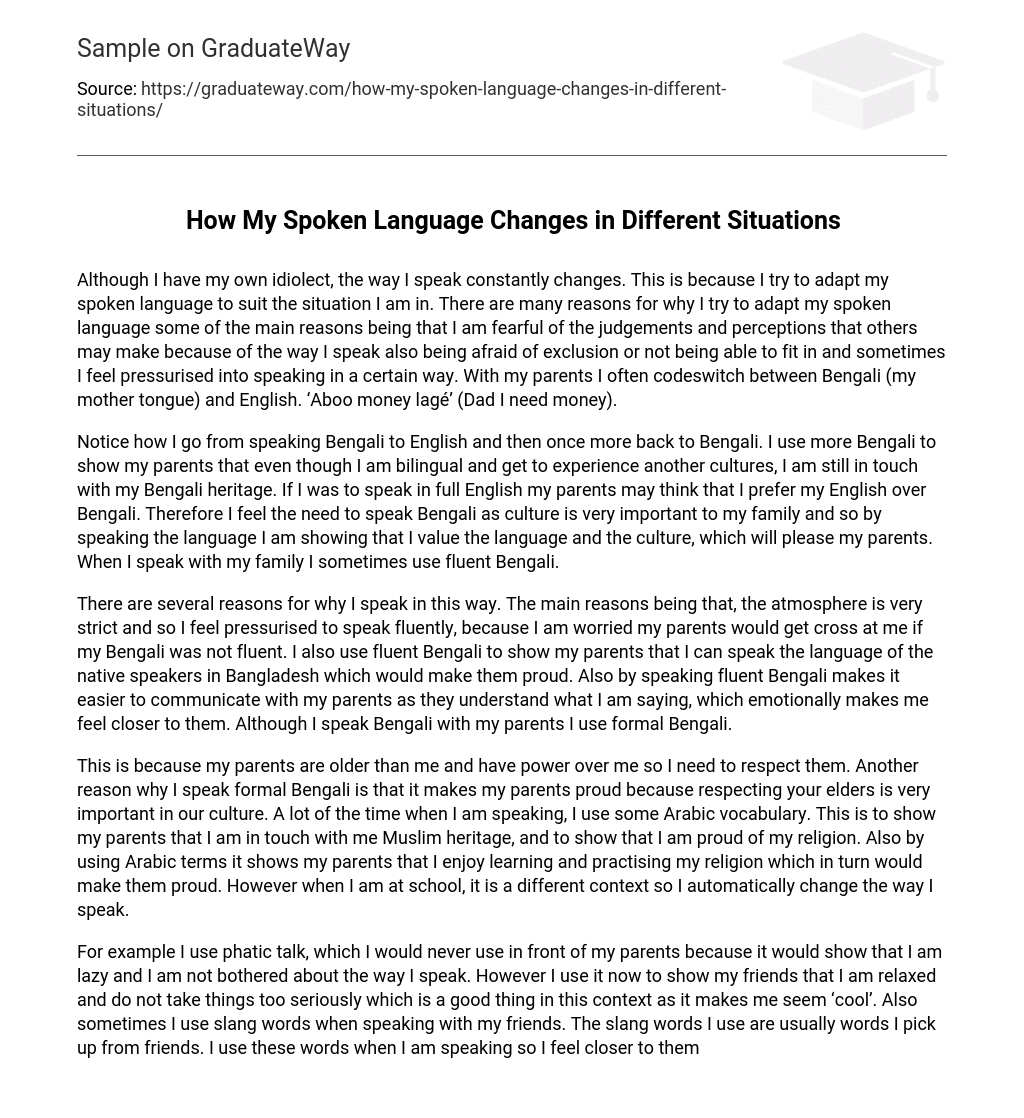Despite my individual speech style, I regularly adjust my spoken language according to the given situation. The primary motivation behind this adaptation is the fear of being judged or receiving negative perceptions due to my speech. Moreover, I worry about exclusion and not fitting in, which sometimes leads me to feel compelled to conform to a particular way of speaking. For instance, when conversing with my parents, I frequently switch between Bengali (my native language) and English, using phrases like ‘Aboo money lagé’ (Dad, I need money).
Despite being bilingual and exposed to other cultures, I consciously switch between speaking Bengali and English. This is because I want to preserve a strong connection with my Bengali heritage and display gratitude for the language and culture that holds significance for my family. By incorporating more Bengali into conversations, I can showcase this bond and bring joy to my parents. Hence, despite fluent proficiency in English, it remains essential for me to occasionally engage in discussions using Bengali.
There are several reasons for my way of speaking. One main factor is the strict atmosphere that pressures me to speak fluently. I worry that if my Bengali isn’t fluent, it will upset my parents. Moreover, I use fluent Bengali to show my parents that I can converse like native speakers in Bangladesh, which would make them proud. Speaking fluent Bengali also helps improve communication with my parents and brings us closer emotionally. Even though I speak Bengali with my parents, I still use formal language.
One reason I speak formal Bengali is due to the age and authority my parents hold over me, necessitating my respect for them. Additionally, speaking formally brings pride to my parents as cultural norms dictate the importance of respecting elders. Incorporating Arabic vocabulary into my speech is another practice I engage in to demonstrate my connection to my Muslim heritage and showcase my religious pride. This usage also signifies to my parents that I value learning and practicing my religion, further instilling a sense of pride in them. However, when I am in a school setting, the context changes, prompting me to adjust my speech accordingly.
When talking to my parents, I avoid using phatic talk to show that I am responsible and mindful of what I say. On the other hand, with my friends, I use phatic talk to display a relaxed attitude and demonstrate that I don’t take things too seriously, which is considered “cool”. Moreover, sometimes when conversing with my friends, I incorporate slang words into my speech. These slangs are typically learned from my peers and using them helps me feel more connected and accepted within our group. Nevertheless, in front of my parents, I refrain from using slang due to the fear of how they may perceive me.
Using slang words within a cultural context can create the impression of being unintelligent and uneducated, which is something I worry about when speaking Bengali, my mother tongue. Despite all of us knowing the language, I find it challenging because my friends might perceive me as a “freshi,” a term that suggests illiteracy and lack of education. Normally, when conversing with my friends, we adopt an informal language style. This choice stems from belonging to the same age group and desiring a more relaxed communication where we don’t have to worry too much about our speaking manner.





